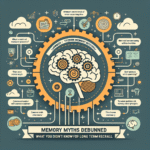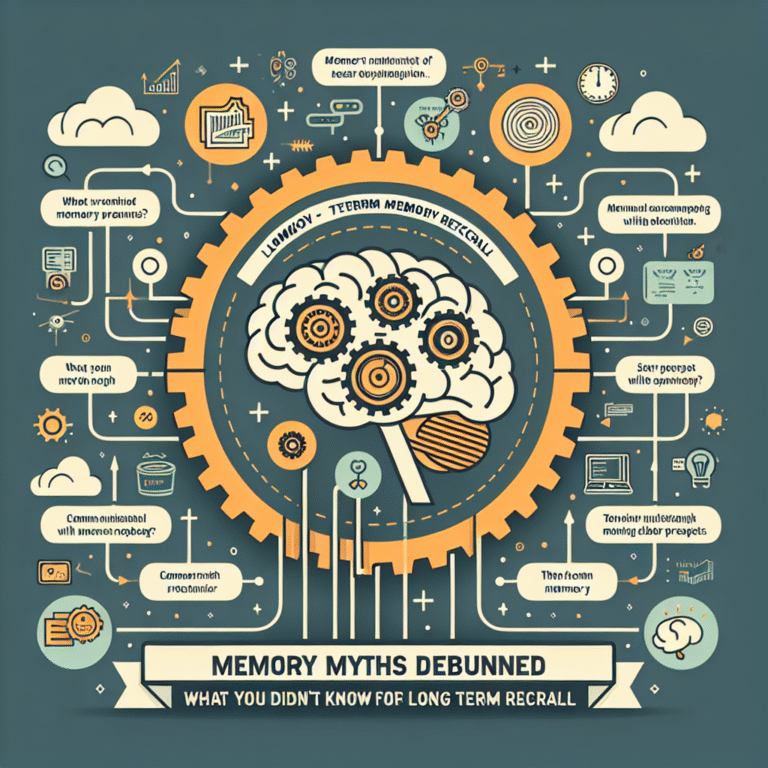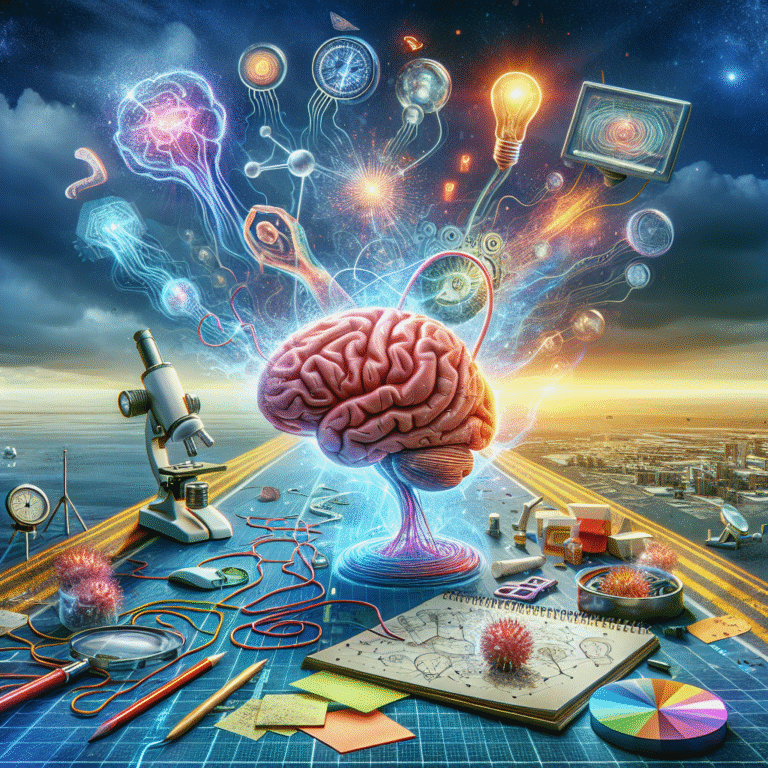
Introduction
In an age where information is at our fingertips, the ability to learn effectively and retain knowledge has never been more crucial. Whether you’re a student, a professional looking to upskill, or someone pursuing personal development, mastering the art of learning and memory can significantly impact your success. This article explores Learning and Memory: The Cognitive Strategies That Enhance Retention, offering in-depth insights into proven methods to improve your ability to absorb and recall information.
The Importance of Learning and Memory
Learning isn’t just about inputting information; it’s about how effectively we can store and retrieve that information later on. Memory serves as the backbone of our cognitive processes, impacting everything from decision-making to creativity. By understanding cognitive strategies that enhance retention, we pave the way for lifelong learning, increase our adaptability, and boost our problem-solving skills.
Understanding Memory Types
Before diving into cognitive strategies, it’s essential to differentiate between types of memory. Memory can be broadly categorized into three types:
- Sensory Memory: The initial grasp of sensory information, lasting just a few seconds.
- Short-term Memory: Holds information temporarily for immediate processing, typically around 15-30 seconds.
- Long-term Memory: Information transfers here for extended periods, even a lifetime.
Understanding these types of memory can guide us in selecting effective learning strategies tailored to improve retention.
Cognitive Strategies for Enhanced Retention
1. Chunking Information
Chunking involves breaking down information into smaller, manageable units. This method is particularly effective for memorizing large pieces of data. For instance, think about how phone numbers are formatted into chunks rather than one long string of digits.
Case Study: The NASA Astronaut Training Program
NASA utilizes chunking in their astronaut training programs, where complex navigation protocols are broken down into smaller segments. This has shown increased recall rates during simulations, demonstrating the effectiveness of chunking in high-stakes environments.
2. Mnemonic Devices
Using mnemonic devices, such as acronyms or rhymes, creates associations that make information easier to recall. For example, the acronym "HOMES" is often used to remember the Great Lakes: Huron, Ontario, Michigan, Erie, and Superior.
Case Study: Medical Students and Mnemonics
A study involving medical students demonstrated that those who employed mnemonic devices while studying anatomy scored significantly higher in retention tests than those who did not, evidencing the effectiveness of this cognitive strategy.
3. Spaced Repetition
Spaced repetition is based on the psychological spacing effect, where information is reviewed at increasing intervals. This technique has been shown to enhance long-term retention.
Chart: The Spacing Effect in Learning
| Study Interval | Retention Rate (%) |
|---|---|
| After 1 Day | 60 |
| After 1 Week | 50 |
| After 1 Month | 30 |
The data supports the idea that revising material over extended periods leads to better retention compared to cramming.
4. Active Learning
Active learning engages students in the learning process, requiring them to participate actively rather than passively consume information. Techniques include discussions, problem-solving tasks, or teaching others.
Case Study: The Flipped Classroom Model
In various educational institutions adopting the flipped classroom model, students report higher satisfaction levels and better retention of material, demonstrating the effectiveness of active learning methods.
5. Visualization Techniques
Visual aids like mind maps or diagrams help connect ideas and enhance understanding. Visualization taps into our brain’s natural inclination to remember images better than text alone.
Brief Analysis: Effectiveness of Visualization
Research suggests that people remember 80% of what they see and do compared to just 20% of what they read. Incorporating visuals can significantly bolster learning and memory.
Strategies for Real-World Application
Example: Corporate Training Programs
Incorporating these cognitive strategies into corporate training can yield substantial benefits. Training sessions that utilize chunking, spaced repetition, and active participation show enhanced staff performance and retention rates.
Implementation Table
| Cognitive Strategy | Application in Corporate Training | Expected Benefit |
|---|---|---|
| Chunking | Break down complex topics into modules | Improved comprehension |
| Spaced Repetition | Schedule refreshers over weeks | Long-term retention |
| Active Learning | Group discussions and exercises | Greater engagement and application |
Conclusion
The journey of Learning and Memory: The Cognitive Strategies That Enhance Retention isn’t just about hard work; it’s about working smart. By implementing these strategies, you’ll not only improve your ability to learn but also create a more enriching educational experience. Whether you’re a student preparing for exams or a professional aiming for growth, embracing these strategies can unlock your potential for retaining knowledge.
As you move forward, remember that the brain is like a muscle—the more you use these strategies, the stronger and more capable your memory will become.
FAQs
1. What is the best technique for improving memory?
Using techniques like spaced repetition and mnemonic devices have proven highly effective for enhancing memory retention.
2. How long should I study to maximize memory retention?
Research generally recommends 30-50 minute blocks of study with short breaks for optimal retention, utilizing spaced intervals over days or weeks.
3. Can diet affect memory?
Yes, a balanced diet rich in omega-3 fatty acids, antioxidants, and vitamins can significantly impact cognitive function and memory retention.
4. How does sleep influence memory?
Adequate sleep is critical for memory consolidation. Most adults require 7-9 hours of quality sleep for optimal cognitive function.
5. Are there specific exercises to improve memory?
Engaging in activities like puzzles, reading, and learning new skills can help improve memory function over time.
Combining all these strategies will allow you not only to enhance your learning experience but also create a path toward lifelong retention of knowledge. Use the insights shared in this article to embark on your journey to becoming a master learner!
















